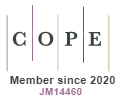Narratives and adolescent tessituras: methodology and challenges of a researcher
DOI:
https://doi.org/10.5585/dialogia.n34.16706Keywords:
Narrative interview, Qualitative research, Teens, Educational measuresAbstract
This article discusses the possibilities of narrative interview as a theoretical-methodological resource in qualitative research. The reflections raised come from the research that resulted in the master's thesis in which the author positions her readings about the representations constructed by adolescents in compliance with socio-educational measures. The investigative path and continuous exercises that intended to translate with intelligibility that the adolescents surveyed brought in their narratives are reported. The use of narrative interviews was guided by the need to understand how adolescents (re)meant compliance with the socio-educational measure. Focusing on the unique experiences of each adolescent, it was observed that narratives provoke changes in the ways in which the subjects understand themselves, others and, for this reason, are important strategies that cause reflection in a emancipatory perspective and youth protagonism. It was concluded that this methodology allowed the approximation between the researcher and adolescents, evidencing the subjective dimension in the narrative process.Downloads
References
ASSIS, Simone G.; CONSTANTINO, Patrícia. Filhas do Mundo: infração juvenil no Rio de Janeiro. Rio de Janeiro: Fiocruz, 2001.
BERGER, Peter L.; LUCKMANN, Thomas. A construção social da realidade: tratado de sociologia do conhecimento. Rio de Janeiro: Editora Vozes, 2004.
BRASIL. Lei n. 6.697, de 10 de outubro de 1979. Institui o Código de Menores. Disponível em: <http://www.planalto.gov.br/ccivil_03/leis/1970-1979/l6697>. Acesso em: 20 jan. 2020.
BRASIL. Conselho Nacional dos Direitos da Criança e do Adolescente. Sistema Nacional de Atendimento Socioeducativo. Resolução n. 119, de 11 de dezembro de 2006. Dispõe sobre o Sistema Nacional de Atendimento Socioeducativo e dá outras providências. Disponível em:
<http://www.mj.gov.br/sedh/ct/spdca/sinase/Sinase.pdf>. Acesso em: 20 jan. 2020.
CLANDININ, D. Jean; CONELLY, F. Michael. Pesquisa narrativa: experiências e história na pesquisa qualitativa. Tradução: Grupo de Pesquisa Narrativa e Educação de Professores ILEEL/UFU. Uberlândia: EDUFU, 2011.
FACHINETTO, Rochele Fellini. A “Casa de Bonecas”; um estudo de caso sobre a unidade de atendimento sócio-educativo feminino do RS. Dissertação (Mestrado em Sociologia) RS: Instituto de Filosofia e Ciências Humanas, Universidade Federal do Rio Grande do Sul, 2008.
FAZENDA, Ivani. (Org.). Novos enfoques da pesquisa educacional. São Paulo: Cortez. 2010. 135p.
FERRER CERVERÓ, Virgínia. La crítica como narrativa de las crisis de formación. In: LARROSA, Jorge. Déjame que te cuente. Barcelona: Editorial Laertes, 1995.
FOUCALT, Michel. Ditos e escritos II: Arqueologia das ciências e história dos sistemas de pensamento. Rio de Janeiro: Forense Universitária, 2000.
FOCAULT, Michel. A palavra e as coisas. Rio de janeiro: Martin Fontes, 2016.
GOFFMAN, E. Estigma: notas sobre a manipulação da identidade deteriorada. NUNES, Márcia Bandeira de Mello Leite (Trad.). Rio de Janeiro: LTC, 1971.
GOFFMAN, Erving. Manicômios, prisões e conventos. 6. ed. São Paulo: Perspectiva,. 2004.
HAGUETTE, Teresa Maria Frota. Metodologias Qualitativas na Sociologia. Rio de Janeiro: Editora Vozes, 2013.
JOVCHELOVITCH, Sandra; BAUER, Martin W. Entrevista Narrativa. In: BAUER, Martin; GASKELL, George (Orgs.). Pesquisa qualitativa com texto, imagem e som: um manual prático. 11ed. Petrópolis: Vozes, 2013. p 90-113.
LAKATOS, Eva Maria; MARCONI, Marina de Andrade. Fundamentos de metodologia científica. 5. ed. São Paulo: Atlas, 2000.
LUDKE, Menga; ANDRÉ Marli E.D.A. Pequisa em Educação – Abordagens Qualitativas. São Paulo: Eidtora Pedagógica e Universitária, 2013.
MINAYO, M.C. S. O desafio do conhecimento: pesquisa qualitativa em saúde. São Paulo: Hucitec, 2010.
MINAYO, Maria Cecília de Souza. (Org). Pesquisa Social: Teoria, Método e Criatividade. Rio de Janeiro: Editora Vozes, 2016.
PREFEITURA MUNICIPAL DE BELO HORIZONTE. Índice de Qualidade de Vida Urbano de Belo Horizonte. Belo Horizonte: IQVU/BH, 2016. Disponível em: . Acesso em 15 fev. 2020.
______. Índice de Vulnerabilidade Juvenil de Belo Horizonte. Belo Horizonte: IVJ/BH, 2016. Disponível em: . Acesso em: 15 fev. 2020.
SALLES, Mione Apolinario. (In)visibilidade perversa: adolescentes infratores como metáfora da violência. São Paulo: Cortez, 2007. 360p.
VYGOTSKY, L. S. Pensamento e linguagem. São Paulo: Martins Fontes, 2011.
Downloads
Published
How to Cite
Issue
Section
License
Copyright (c) 2020 Dialogia

This work is licensed under a Creative Commons Attribution-NonCommercial-ShareAlike 4.0 International License.






